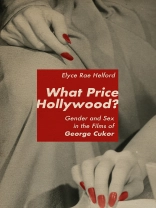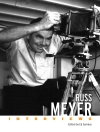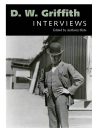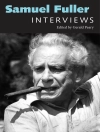During the early Hollywood sound era, studio director George Cukor produced nearly fifty films in as many years, famously winning the Best Director Oscar at the 1964 Academy Awards for My Fair Lady. His collaborations with so-called difficult actresses such as Katharine Hepburn, Judy Garland, and Marilyn Monroe unsettled producers even as his ticket sales lined their pockets. Fired from Gone with the Wind for giving Vivien Leigh more screen time than Clark Gable, Cukor quickly earned a double-sided reputation as a ‘woman’s director.’ While the label celebrated his ability to help actresses deliver their best performances, the epithet also branded the gay director as suitable only for work on female-centered movies such as melodramas and romantic comedies. Desperate for success after a failed drag film nearly ended his career, Cukor swore to work within Hollywood’s constraints.
Nevertheless, What Price Hollywood? Gender and Sex in the Films of George Cukor finds that Cukor continued to explore gender and sexuality on-screen. Drawing on a broad array of theoretical lenses, Elyce Rae Helford examines how Cukor’s award-winning films—titles including My Fair Lady and The Philadelphia Story—as well as his lesser-known films engage Hollywood masculinity and gender performativity through camp, drag, and mixed genres. Blending biography with critical analysis of more than twenty-five films, What Price Hollywood? tells the story of a once-in-a-generation director who produced some of the best films in history.
Tabella dei contenuti
Introduction
The Woman’s Director and Women’s Friendships
Collaboration and Chastisement: Cukor Directs Hepburn
Tone, Genre, and the Actor’s Director
Masculinity and the Man Who Drinks
Edelkayt: A Jewish Angle on the Cukor Male
The Theatricality of Gender and Drag Performance
Queer Musical Excess
Race, Nation, and Gendered Noir Anxiety
Ethnic Assimilation and 1950s Hollywood
Conclusion
Circa l’autore
Elyce Rae Helford is professor of English, former director of women’s and gender studies, and current director of Jewish and Holocaust Studies at Middle Tennessee State University. She is coeditor of The Woman Fantastic in Contemporary American Media Culture and editor of Fantasy Girls: Gender in the New Universe of Science Fiction and Fantasy Television.












